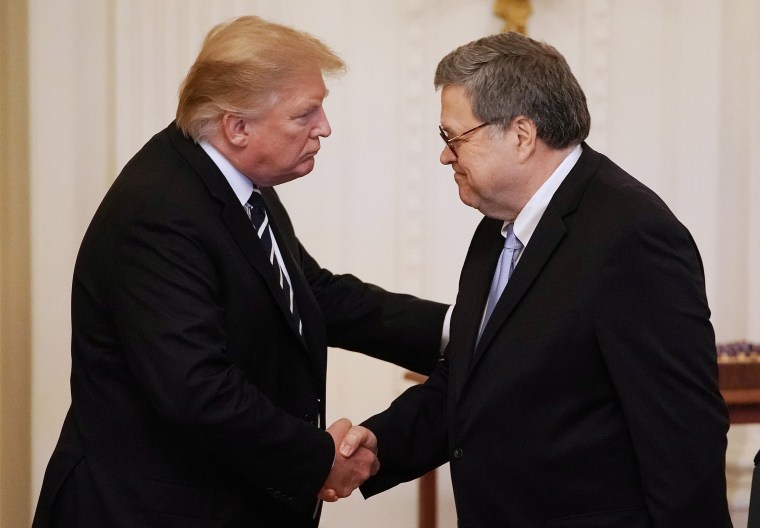Donald Trump and his campaign team sought and received Russian assistance in 2016, and after the election, incoming White House National Security Advisor Michael Flynn quietly assured Moscow that the new Republican administration wouldn't be nearly as tough on Russia as the Obama administration.
When the FBI asked the retired general about those interactions, Flynn lied. When he soon after faced criminal charges, Flynn twice admitted, in court and under oath, that he was guilty. Donald Trump is -- or least, was -- well aware of this, writing on Twitter in December 2017, "I had to fire General Flynn because he lied to the Vice President and the FBI. He has pled guilty to those lies."
Yesterday, Attorney General Bill Barr's Justice Department dropped the charges, concluding that it cannot prove Flynn is guilty of the crimes to which he's already pleaded guilty.
The New York Times' Charlie Savage did a nice job summarizing the unprecedented nature of the circumstances.
The Justice Department's decision to drop the criminal case against Michael T. Flynn, President Trump's former national security adviser, even though he had twice pleaded guilty to lying to investigators, was extraordinary and had no obvious precedent, a range of criminal law specialists said on Thursday.... A range of former prosecutors struggled to point to any previous instance in which the Justice Department had abandoned its own case after obtaining a guilty plea.
Julie O'Sullivan, a former federal prosecutor who now teaches criminal law at Georgetown University, added, "I've been practicing for more time than I care to admit and I've never seen anything like this."
On MSNBC last night, House Intelligence Committee Chairman Adam Schiff (D-Calif.) told Chris Hayes, "This puts us back in the category of almost an emerging democracy, where the rule of law is not yet firmly established, where prosecutorial decisions are made on the basis of politics." Schiff added that the system has been pushed to an "all time low."
This assessment is both fair and compelling, though it is not altogether new. For example, Barr's Justice Department targeted Andrew McCabe, the former acting FBI director, as part of a brazenly political scheme that a conservative federal judge said was similar to what one might find in a "banana republic."
We saw related political interventions in the Roger Stone case. And the Michael Cohen case. And possibly in cases that weren't even made public.
As we've discussed, the emerging pattern lacks subtlety: on cases of interest to Trump, we've seen the president's attorney general try to steer prosecutorial decisions in ways consistent with the White House's wishes. The result is a dynamic in which there two parallel systems seemed to take shape: one for cases that the president cares about, in which Barr has played a direct and personal role, and another for the rest of the justice system.
A Washington Post report added a few months ago that Barr's Justice Department "has repeatedly tasked U.S. attorneys from far-flung offices to parachute into politically explosive cases," which has raised "concerns among current and former officials that agency leaders are trying to please the president by reviewing and reinvestigating cases in which he is personally or politically invested."
The article specifically referenced the attorney general's intervention in the Flynn case, which current and former officials said "seemed to be part of a new pattern of Justice Department political leadership spinning up inquiries that might help Trump and his friends and hurt their perceived foes."
Barr sat down with CBS News yesterday and was asked how he thinks history will judge his decision making. "Well, history is written by the winner," the attorney general replied. "So it largely depends on who's writing the history."
Sen. Chris Murphy (D-Conn.), reacting to the exchange, wrote, "My god. The entire idea of the rule of law -- that thing the Attorney General is supposed to be in charge of upholding -- is predicated on the outcome of elections NOT mattering when it comes to the operation of the legal system."
The senator's right, though Barr doesn't care. The Republican attorney general, acting at the behest of a president who's indifferent to the rule of law, believes if he and the rest of Team Trump abuse their powers and prevail, it will be right because they'll say so.
It's a school of thought that says traditional niceties -- about the integrity of the American system of justice, about right and wrong -- are inconvenient details that deserve to be overlooked. What really matters is what the powerful and politically connected can get away with.
